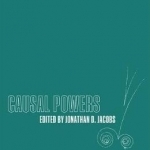Causal Powers
BookThis item doesn’t have any media yet
2017 | Philosophy, Psychology & Social Sciences
Causal powers are ubiquitous. Electrons are negatively charged; they have the power to repel other electrons. Water is a solvent; it has the power to dissolve salt. We use concepts of causal powers and their relatives-dispositions, capacities, abilities, and so on-to describe the world around us, both in everyday life and in scientific practice. But what is it about the world that makes such descriptions apt? On one view, the neo-Humean view, there is nothing intrinsic about, say, negative charge, that makes its bearers have the power to repel other negatively charged particles. Rather, matters extrinsic to negative charge, the patterns and regularities in which negatively charged particles are embedded, fix the powers its bearers have. But on a different view, the anti-Humean view, causal powers are intrinsically powerful, bringing with them their own causal, nomic, and modal nature independent of extrinsic patterns and regularities-even fixing those patterns and regularities.
This collection brings together new and important work by both emerging scholars and those who helped shape the field on the nature of causal powers, and the connections between causal powers and other phenomena within metaphysics, philosophy of science, and philosophy of mind. Contributors discuss how one who takes causal powers to be in some sense irreducible should think about laws of nature, scientific practice, causation, modality, space and time, persistence, and the metaphysics of mind.
Related Items:
| Published by | Oxford University Press |
| Edition | Unknown |
| ISBN | 9780198796572 |
| Language | N/A |
Images And Data Courtesy Of: Oxford University Press.
This content (including text, images, videos and other media) is published and used in accordance
with Fair Use.
